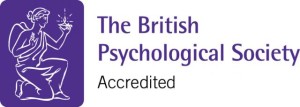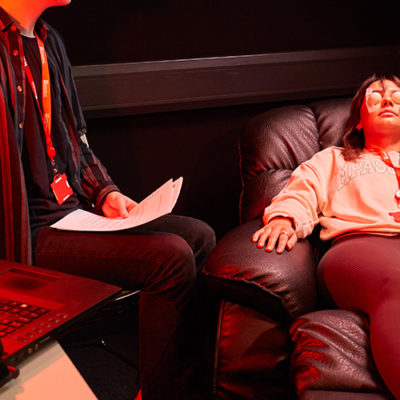
Amar Cherchar
Senior Lecturer in Psychology
Faculty of Health, Education and Society
DiscoverGet in touch with us as we may be able to offer you a place for September 2024 through Clearing.
UCAS Code
3 year: C816
4 year: C817
Level
UndergraduateUG
BSc (Hons)Duration
Full Time: 3 Years
Foundation: 4 Years
Part Time: 4 - 6 Years
Starting
September
BBC at A Level
DDM at BTEC
Fees UK 24/25
Full Time: £9,250
Part Time: £1,540 per 20 credit module
Integrated Foundation Year: £9,250
International Fees 24/25
Full Time: £15,200
Integrated Foundation Year: £15,200
Location
For questions regarding study and admissions please contact us:
study@northampton.ac.uk
0300 303 2772
This BSc Forensic Psychology course will provide you with a unique opportunity to understand how psychological knowledge informs forensic practice. We will provide you with hands-on experience in conducting scientific research on forensic topics alongside the development of core developmental, cognitive, social, and biological skills.
Throughout our forensic psychology undergraduate degree, you will have the flexibility to choose from a range of modules. The combination of module choices will allow you to examine all aspects of criminal behaviour from pathways into crime, to crime scene behaviours, and criminal profiling techniques.
This forensic psychology programme is accredited by the British Psychological Society (BPS) and is the first step towards becoming a Chartered Psychologist. This means that upon completion of your degree (with an overall classification of a 2:2 or above), you are eligible for Graduate Basis for Chartered Membership (GBC) to the BPS. Acquiring your GBC has a host of benefits for a future career in Psychology. The accredited Psychology degrees at UON mean that you could move into Postgraduate Study in a number of areas in Psychology and beyond, without needing to do a further Psychology Conversion course to obtain GBC status.

Updated 18/07/2024
Graduate Basis for Chartered (GBC) Membership is considered as the starting point to your career in psychology. Obtaining GBC encompasses many benefits, including access to journals, conferences, and events. You will have the opportunity to enhance your employability through volunteering opportunities and research placements, as well as through the BSc forensic psychology course focus on analysing human behaviour from many psychological perspectives.
The Positive Psychology modules which run in stages 1 and 3 of this Forensic Psychology course will help you to develop transferable psychological skills and knowledge. These will allow you to solve real-world problems, whilst supporting emotional wellbeing when studying sensitive topics.
Throughout level 4 of this Forensic Psychology course, you will be introduced to the key themes, theories, and research of psychology.
At level 5 you will take a closer look at social and developmental issues and theories as well as contemporary topics in Forensic Psychology. These include ethical, legal, and moral dilemmas.
Level 6 is focused upon a more advanced critical understanding of the specialist topics within forensic psychology, including both research and practice. A core research methods and skills module will run through each year. This will allow you to progressively develop your ability to plan and conduct scientific research independently.
You will be supported to conduct your own research, work on real-life case studies, and have the opportunity to engage in presentations at relevant professional conferences.
You will be invited to talks with external forensic psychology experts in both research and practice, across a range of different careers. This will provide you with invaluable ‘insider’ information and enable you to make informed decisions about your future aspirations within forensic psychology.
Please note the modules shown here relate to the academic year 24/25. The modules relating to the academic year 25/26 will be available from June 2025.
Typical requirements for Forensic Psychology are:
We welcome applications from students with a mix of A levels and BTEC/Cambridge Technical qualifications.
In addition, you will be expected to have achieved GCSE Maths at Grade C/4 or above. Domestic equivalencies are not accepted, apart from Access applicants who must take 12 credits of Maths Level 2 or 6 credits of Maths Level 3 as part of their Access course. International equivalences will be reviewed on application.
The standard entry requirements for the Integrated Foundation Year are:
We welcome applications from students with a mix of A levels and BTEC/Cambridge Technical qualifications.
For information on how to apply to study with us, please see our How to Apply page.
All International and EU students applying for a course with us must meet the following minimum English language requirements:
IELTS 6.0 (or equivalent) with a minimum of 5.5 in all bands for study at undergraduate level
For information regarding English language requirements at the University, please see our IELTS page.
For information on how to apply to study with us as an International student, please see our How to Apply for International Study page.
Fees quoted relate to study in the Academic Year 24/25 only. They may be subject to inflationary increases in future years.
Fees quoted relate to study in the Academic Year 23/24 only. They may be subject to inflationary increases in future years.
For more information about possible funding options, please visit our Fees and Funding pages.
At the University of Northampton, everything we do, from funded trips to paid internships, is to give you everything you need to make a difference when you leave.
If you join our full-time Forensic Psychology course at Northampton, you will receive a laptop when your course begins*. The laptops are built to a bespoke custom specification ideal for use in the seminar room, collaborative group work or studying at home.
Whatever your ambitions, we’re here to help you to achieve them. We’ll support you to identify the skills you’re learning during your course, find your strengths and secure practical experience so that when it comes to applying for jobs or further study you’ll feel confident in standing out from the crowd. We’ve created the Northampton Employment Promise because we are so confident that if you focus on your studies and complete one of our awards you’ll be highly employable by the time you graduate. Putting you in a great position to secure employment or continue your studies.
To check out the full list of perks, visit our Student Perks page or dedicated International Perks page.
* UK fee payers only (see Terms and Conditions for further details)
The Integrated Foundation Year (IFY) offers a new and exciting route into studying for a degree, attracting ambitious and driven students who are willing to learn and advance.
If you have non-standard qualifications or do not quite meet the admissions requirements we can offer you a fantastic opportunity to study a four year programme which includes an Integrated Foundation Year. The Integrated Foundation Year will help you develop the theoretical/practical and academic skills you need, in order to successfully progress to the full award.
Our four-year courses will enable you to successfully follow the degree pathway of your choice while gaining essential study skills. The foundation year of your chosen degree will be studied on a full-time basis and is aimed at supporting the transition to higher education. Years two, three and four are then studied as a standard degree programme.
The main employer of forensic psychologists is HM Prison Service. However, there are several other opportunities for employment such as:
The mode of teaching for this BSc Forensic Psychology is designed to provide as much face-to-face contact for students as possible. However, we also provide flexibility for those students who are unable to work on campus for travel, personal or other reasons.
You will be given the opportunity to apply for research assistant roles with members of the programme team. This involves collaborations with researchers in Universities across the UK, as well as international collaborations.
We provide you with an opportunity to experience the world of work: a year-long placement in between Stages 2 and 3 of study. If you choose to take up a placement year, you will spend a whole year (up to 48 weeks) working for local businesses and NHS recognised placement providers, such as St Andrews Hospital and Great Ormond Street Hospital.
We offer a lot of support in helping you to find a placement, which can be in the UK or overseas. This invaluable experience helps you to apply your learning in your final year and prepares you for your career.
Senior Lecturer in Psychology
Faculty of Health, Education and Society
DiscoverSenior Lecturer in Psychology
Faculty of Health, Education and Society
DiscoverLecturer in Psychology
Faculty of Health, Education and Society
DiscoverSenior Lecturer in Psychology
Faculty of Health, Education and Society
DiscoverAssociate Lecturer (Psychology)
Faculty of Health, Education and Society
DiscoverOnce you graduate with a forensic psychology degree, you will be eligible for graduate membership of the British Psychological Society (BPS). Graduates can apply directly for postgraduate study to work towards becoming a professional forensic psychologist. Graduate employability in forensic psychology is very good, graduates can provide vital services in the legal and criminal justice system of a specific area. They can also work in universities, research centers, hospitals, medical examiners’ offices, forensic laboratories, police departments or as independent consultants.
Successful completion of our forensic psychology course can lead onto further studies if required:
Across our forensic psychology programme, we facilitate independent self-study by providing access to library resources, the opportunity to sign up to internal and external workshops as well as skills training events, and the opportunity to apply for small grants to cover academic activities such as conference entry.
The Learning Hub is at the heart of the campus and home to the student information desk.
Discover
The Psychology course is embedded within a highly flexible modular system, enabling you to choose modules from a range of options.